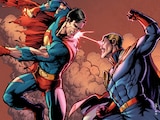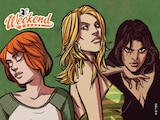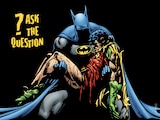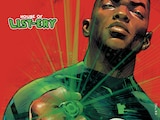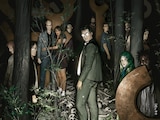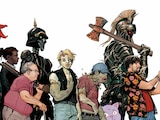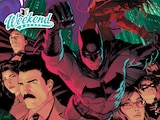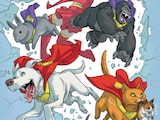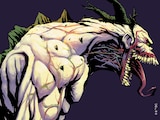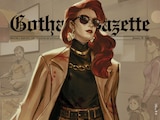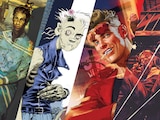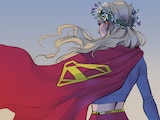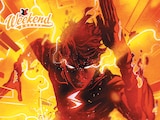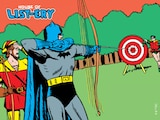If you’re a comics fan, you likely know the name G. Willow Wilson. You certainly know her work. Over the past decade, Wilson has made her mark on some of DC’s greatest characters, including Catwoman, Vixen and Wonder Woman. In her acclaimed Poison Ivy series—the first ongoing series starring the infamous Bat-villain in DC’s history—Wilson and artists Marcio Takara, Brian Level and Atagun Ilhan have taken Ivy on a journey of self-discovery and catharsis that’s both utterly chilling and thoroughly compelling. Ivy is a force to be reckoned with as she finally faces who and what she is—and the tormenter who transformed her forever.
Recently, we spoke with Wilson about Poison Ivy as well as her just-launched new miniseries, Lazarus Planet: Revenge of the Gods, which spins out of last month’s universe-shaking event. Since it’s Women’s History Month, we also asked her some questions about women in the comic industry she admires and how inspiration can strike out of the blue (and green).
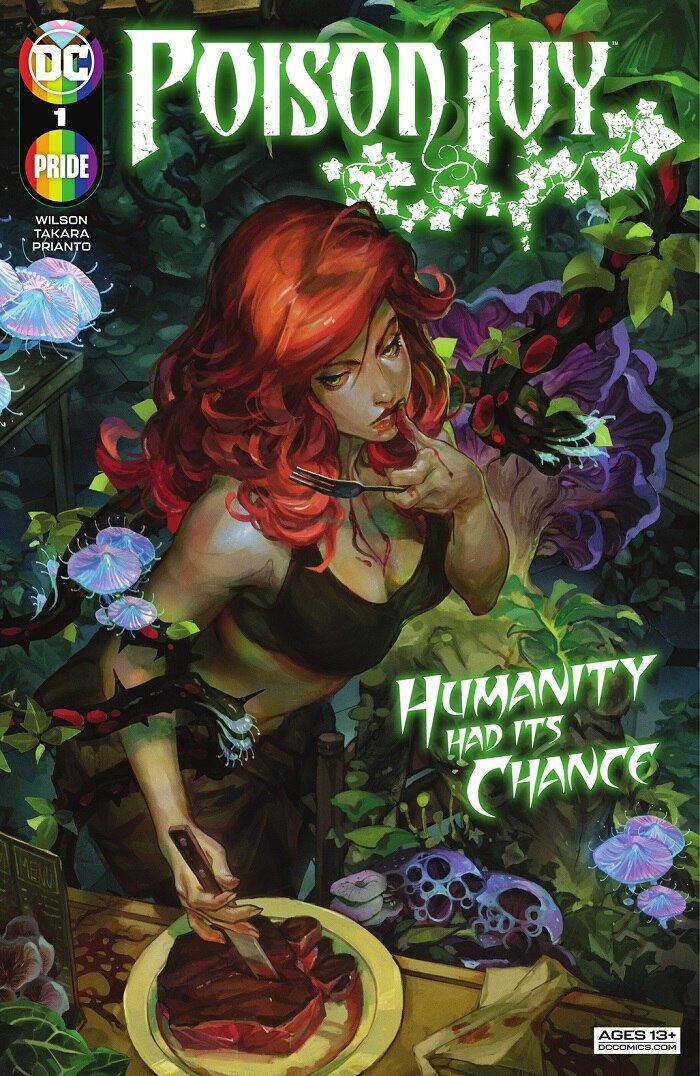
Congratulations on Poison Ivy continuing as an ongoing series! When you started the story, did you have any goals for where you wanted to take Poison Ivy as a character?
I'd always kind of wanted to do a story involving the characters who are integrated into the Green in the DC Universe. I love Swamp Thing, Poison Ivy, Solomon Grundy, all those guys. And it felt like a really appropriate time to do a story like that because of our renewed focus on climate change, mass extinctions and all of those depressing things.
But it really did seem like Poison Ivy's time to shine and get a story of her own. I just love the character and I was hoping that we could prove that she's got enough backstory, enough rich character history, and enough motivation and charisma to hold a series on her own.
I think she's really complicated. Most Bat-characters can easily be categorized as a hero, super-villain or, occasionally, an anti-hero. But is there one single category that Poison Ivy falls into now?
No, I don't think that there is. I don't think you can lock her down. I think her goals are noble—she really does love and care about planet Earth. Her motives are pure, but her methods can be shocking and inhumane. And it's that juxtaposition that I really love to explore. You look around and, in many ways, large and small, we're feeling the effects of a changing planet. There's a lot of tension and anxiety about that. She shares those feelings, but she acts on them in a villainous way.
She's grown over the course of the last year. I think she's kind of taken the fight to the main bad actors in destroying the Earth rather than kind of lashing out at humanity as a whole. There are villains who are evil, their methods are evil, their motives are evil, they're evil top to bottom, and she's definitely not one of those.
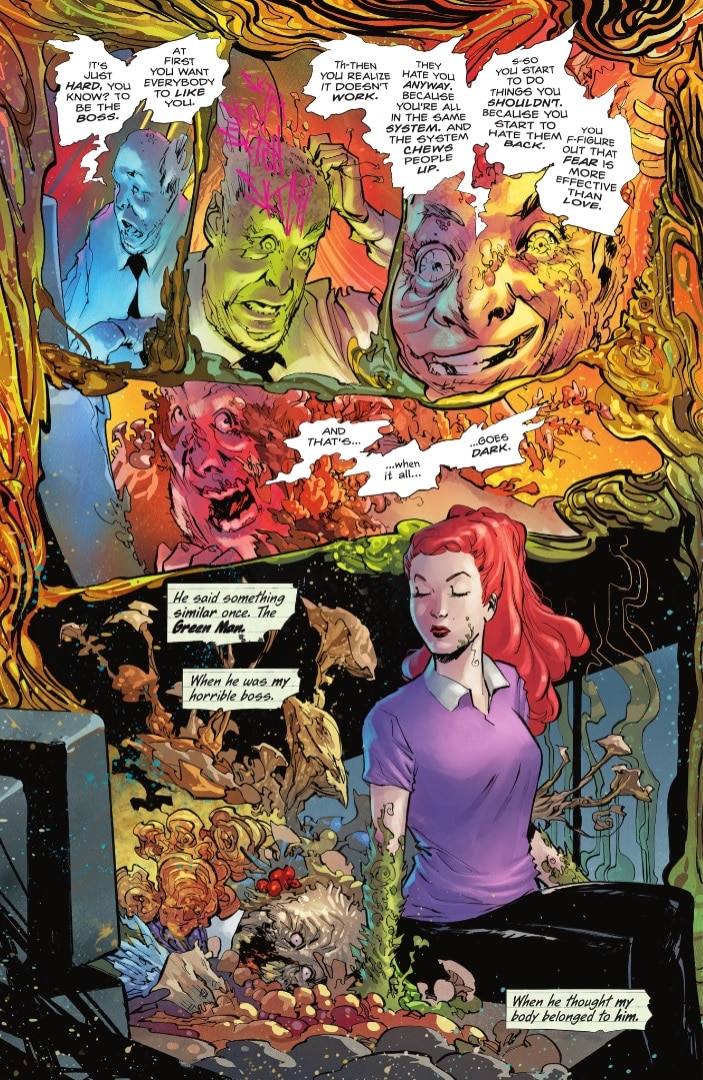
There’s one category I’d use for her right now, though: creepy!
Absolutely, yeah. The creepiness is fun to play around with. Nature is not pretty or pleasant. I think we like to sanitize it for ourselves and pretend it's this kind of clean, innocent fun. But a lot of nature is very gross.
Especially mushrooms.
Yes. Oh, my God, yeah. Neither living nor dead. There is a gross-out factor in this book. I've never done a book like this before and I am having the time of my life.
Like you said earlier, there’s a juxtaposition with Ivy. Gross and creepy, but in Poison Ivy #3 we see she's really happy just picking out plants to buy. You can easily imagine her browsing the home improvement store. Is that how you see Ivy, with part of her still a normal person?
Ivy would love to be a normal person. I don't think that she wants to be an ecoterrorist. I don't think that this is something that she enjoys. She would love to just have a beautiful garden and buy too many plants and spend time with Harley. But she feels that she can't. She can’t sit by because she knows that all of those things that she loves are in danger of being destroyed. And somebody has to be willing to get their hands dirty in order to save those things.
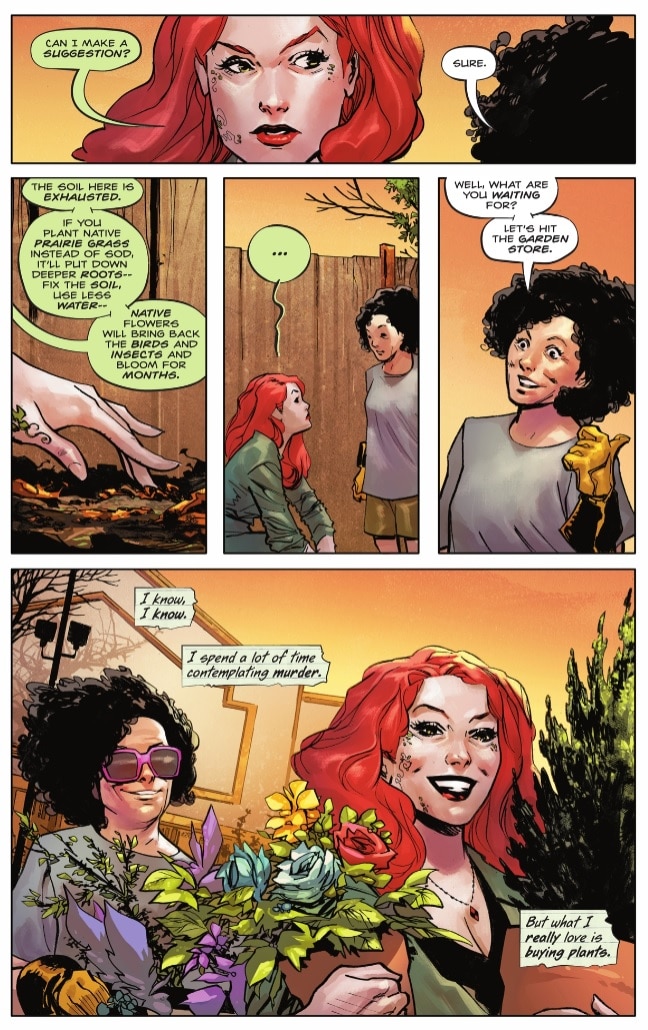
During the first arc of the series, she hits her lowest point. Things are looking pretty bad and she's hallucinating, but the person she hallucinates to help her is Batman, not Harley. Why did you pick Batman, and what do you think that says about Ivy?
I think we are as defined by our enemies as we are by our friends. There's a weird sort of emotional intimacy that comes with fighting against someone for a really long time. It was just kind of an interesting thing to do, to drop him in there at that moment. At other points in this series, she dreams or hallucinates about Harley and it's always about escaping. She's imagining these idyllic landscapes and situations, and Harley is there and everything's fine.
But at the climax of her conflict with Jason Woodrue, she's in the trenches. She is fighting. I think in her mind, the person who's sort of cold and calculating with fighting skills she wants to tap into is actually her enemy, not her friend or somebody she likes.
And it was fun. It was fun to have Batman hanging out there as a hallucination, saying things he wouldn't normally say.
Like a pep talk!
A strangely positive pep talk! (laughs) It was fun to do sort of surreal Batman.
I really like those scenes together. It made me wish it was a real relationship, like they were…
Actually interacting.
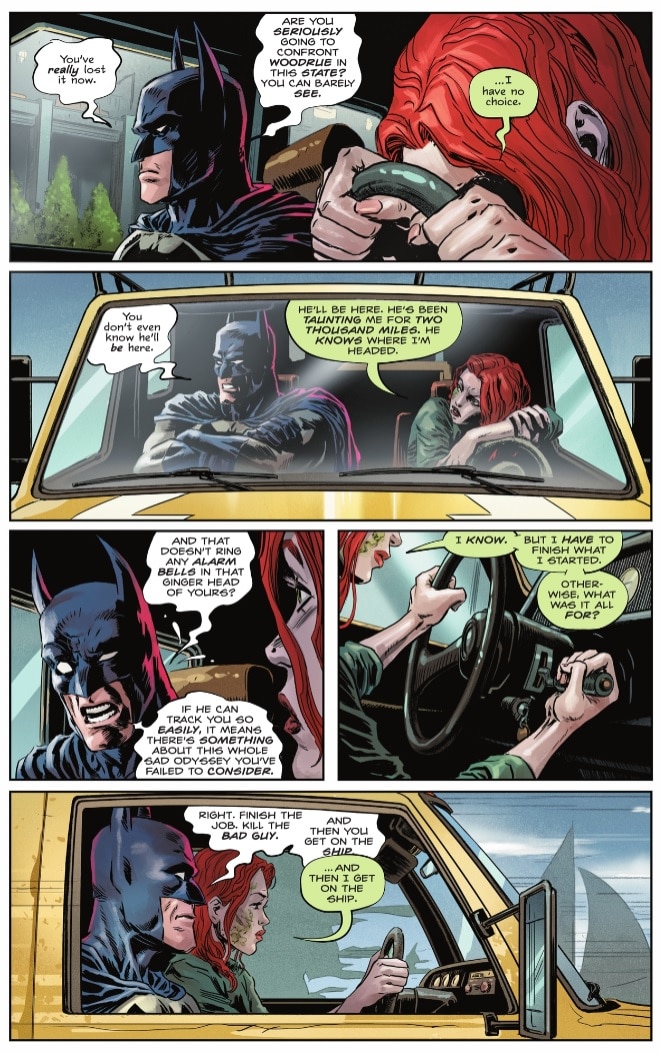
Yeah! So, Ivy ends up in Seattle, and she's given a helping hand. The soccer fan who helps her is holding a striped blue and green scarf. Could Poison Ivy be a Seattle Sounders fan now?
I wrote that arc when I was really getting into soccer and it really seemed to kind of converge in this serendipitous, meaningful way. The realization that she has in that scene is that humanity is not distinct from the Green—humanity is part of it. Nature is within us. We have thousands and billions of tiny microorganisms that live on our skin that connect us to all the other living beings.
She says to herself, “We are the Green.” And that's actually the back half of a Seattle Sounders chant. (laughs) This almost never happens or lines up so serendipitously. But I'd been thinking and thinking for months about one line, something short enough to fit into a word balloon that she can say. She doesn't have a tagline, but this is as close as it gets. I thought about it and thought about it, and nothing was clicking. And I was at a Sounders game, and they were doing that chant, and I was like, oh, there it is. It's right.
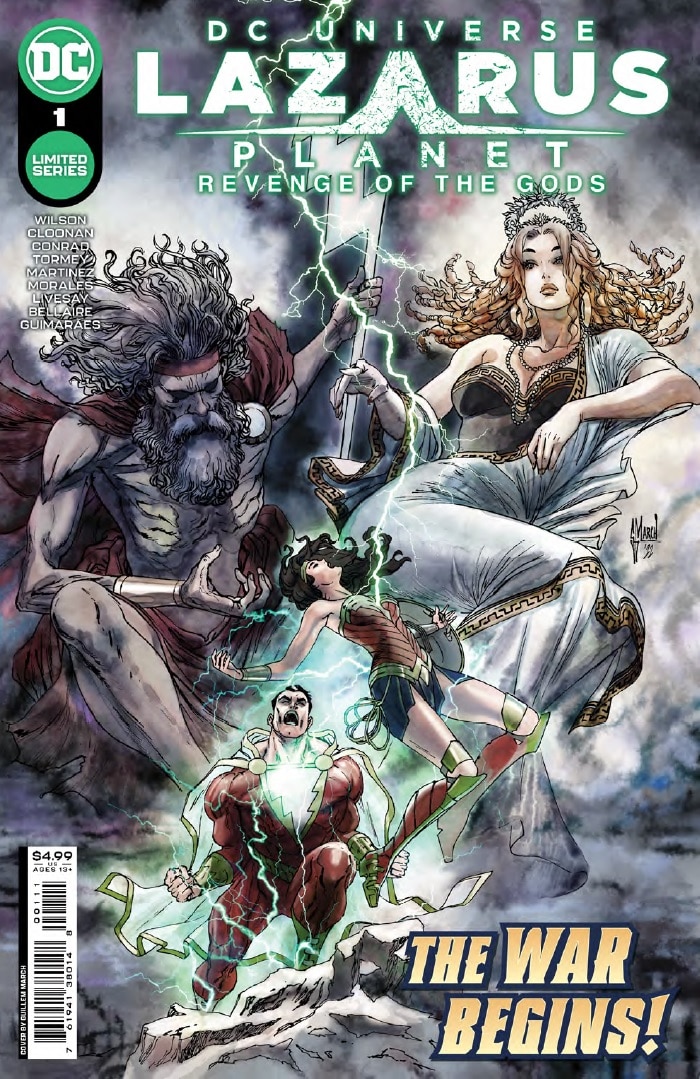
Let’s talk Lazarus Planet: Revenge of the Gods. How is it working on a big event as opposed to working in Ivy's little corner of the DC Universe?
The fun thing about the big event books is that you get to coordinate with other writers and artists. You get to see and chat with people you normally only get to see at conventions. That's the biggest difference. There's an enormous level of coordination that a book that's off in its own little corner does not require. Me and Becky Cloonan and Michael Conrad and a bunch of other people were getting on Zoom and sort of throwing ideas back and forth and saying, okay, you take this bit, I'll take this bit, and trying to figure out where everything sort of fit.
This is a crossover that involves a lot of different characters. The whole Wonder Woman pantheon is there. We're bringing in the Shazam family. There are a lot of characters who are either interacting for the first time in a long time or interacting for the first time ever. And that's really fun and complete chaos. (laughs) There are so many moving parts, but that's what's so much fun. You get to do the big set pieces, the double page spreads, the giant fight scenes, the characters who normally never get to hang out and now they're fighting back-to-back.
What was it like coming back to Wonder Woman after a few years away from writing her?
It was quite nostalgic. It’s always a privilege to be able to write Wonder Woman. And not just Diana herself, but the incredible cast of supporting characters that she has. The fun thing about Wonder Woman is that because her supporting cast is so huge, you can write a story in pretty much whatever genre you want. There are mad scientists, right? There are Greek gods, there are Amazons, there are classic superhero villains. There's literally everything. It’s a lot of fun to be able to play in that world again.
I love writing Wonder Woman.
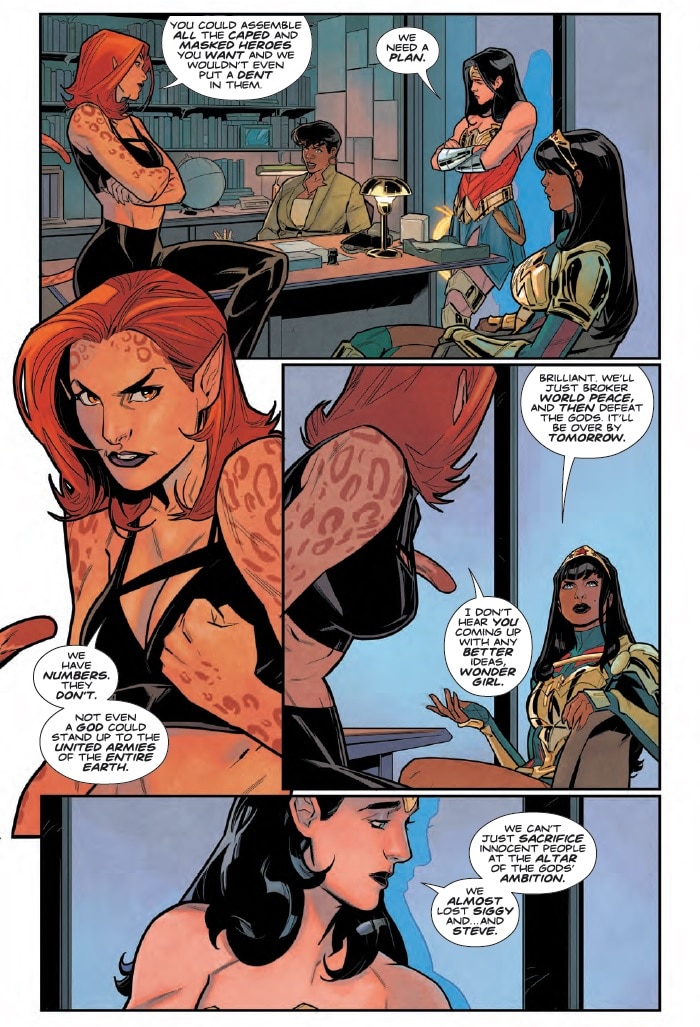
Can you talk a little bit about the role she's playing in the Revenge of the Gods?
In Revenge of the Gods, Wonder Woman is faced with an impossible choice. She can save everyone in man's world or her sisters in Themiscyra. And being faced with that impossible choice leads to some unexpected outcomes and puts her in a position that she hasn't been in previously in her story. So, we get visually all kinds of new interesting stuff—we get to use her powers in some very unexpected ways. There are characters from Wonder Woman's story that readers haven’t seen in a while. There's a big plot twist, and then on top of that, there's another big plot twist.
For big events we sometimes get the tagline, “It will never be the same again!” I feel like that actually applies this time, doesn't it?
In a sense, it really does. There are certainly relationships and alliances that are coming that are going to be permanent. Things will certainly change and I hope provide fodder for more stories going forward.
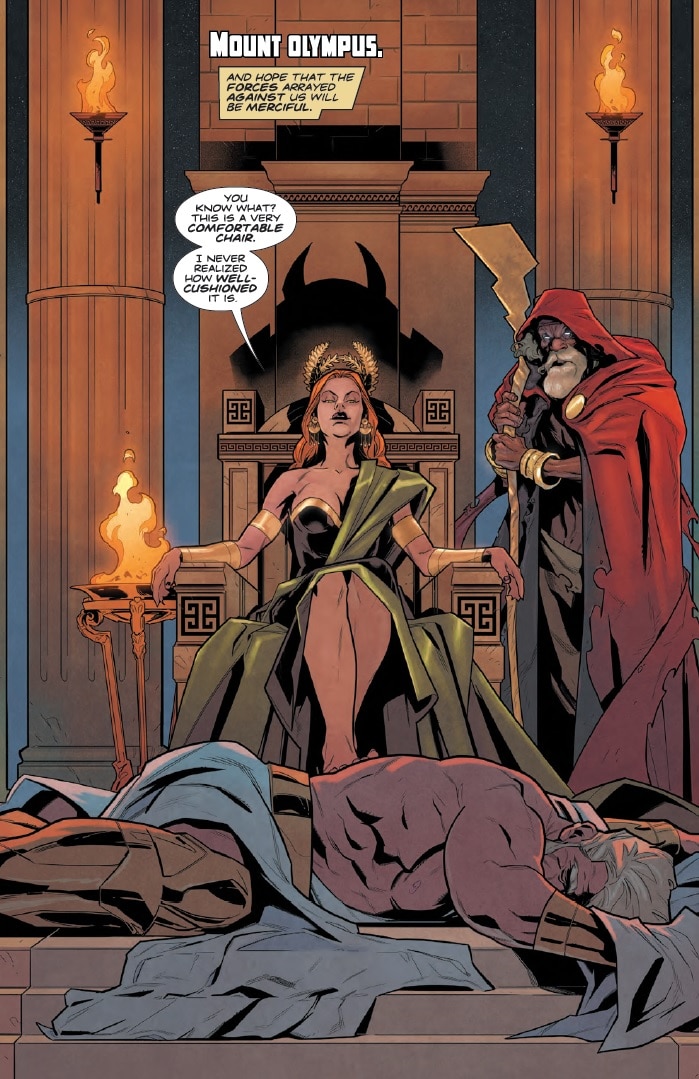
And lastly, March is Women's History Month, so I wanted to ask if you had some comics creators that you'd like to highlight.
I think someone whose impact on not just DC Comics, but the way that we tell stories in comics in general, that cannot be overstated is Karen Berger. I'm biased because I was lucky enough to be one of her last mentees at Vertigo before she left. I feel personally incredibly lucky to have benefited from her decades of wisdom in the business. There are a lot of us working today who would not be able to tell the kinds of stories that we're telling without her influence.
I'm going talk about Becky Cloonan again because I love her. Not just because she's a great person, but also because she's a double threat. She can write and she can draw, which is very unfair. (laughs) I've loved seeing the evolution of her work over the years. And it's great to be able to work with her again.
And, one of the people who's had the most profound influence on my life, both professionally and personally, is Sana Amanat at Marvel for obvious reasons.
It’s great that now I have to narrow it down. It used to be that you combed your brain and everybody would come up with the same two or three examples. I think it's incredible now that there are so many women working in the industry in so many different roles versus even ten years ago. That's amazing. I feel very lucky.
Poison Ivy by G. Willow Wilson and Marcio Takara is now available as an ongoing series in print and on DC UNIVERSE INFINITE.
Lazarus Planet: Revenge of the Gods #1 by G. Willow Wilson and Cian Tormey is also available now in print. It will be available on DC UNIVERSE INFINITE for Ultra subscribers next month!
Kelly Knox writes about all-ages comics and animation for DC.com and her writing can also be seen on IGN, Nerdist and more. Follow her on Twitter at @kelly_knox to talk superheroes, comics and pop culture.

